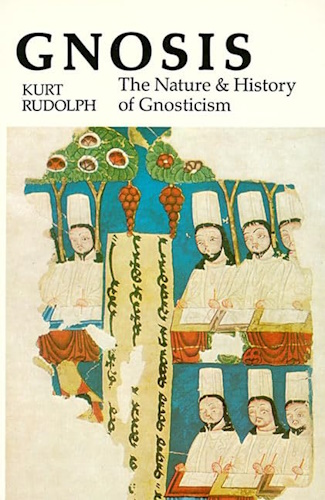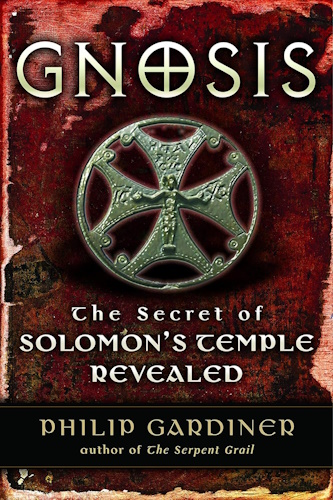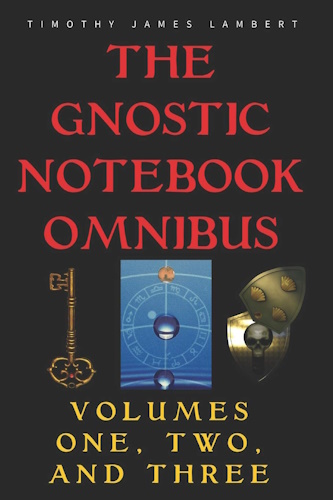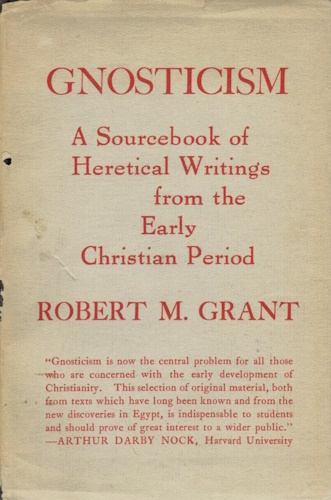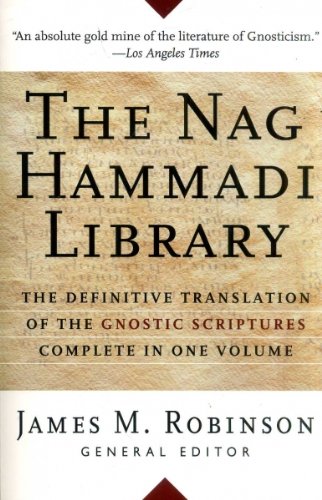
TABLE OF CONTENTS
Nag Hammadi Library - In December 1945, two peasants, Muhammed and Khalifah 'Ali of the al-Samman clan were digging for fertilizer at the base of the Jabal al-Tarif cliff, using the saddle-bags of their camels to carry the earth back. The cliff is about 11km north-east of Nag Hammadi. They tethered their camels to a boulder, and came upon a buried jar as they were digging around the base of the boulder. Muhammed 'Ali told J.M.Robinson that at first he was afraid to break the jar -- the lid may have been sealed with bitumen, as a blackish substance is present on the lid -- for fear a jinn might be inside, but then he thought that gold might be contained in it instead, so he broke it with his mattock. Out flew particles of papyrus.
Today all the Nag Hammadi codices are in the Coptic Museum in Cairo.
Publication was obstructed by the desire of various scholars to publish works first, with a full (and so lengthy to prepare) commentary. US scholar James Robinson became interested in the 1960's, and using contacts at UNESCO was able eventually to bypass this exhibition of obscurantism. The full collection was published in facsimile by Brill between 1972-1984 as the Facsimile edition of the Nag Hammadi Codices. There is a 17-volume English edition, entitled The Coptic Gnostic Library, and full English translations in the Nag Hammadi Library in English. Robinson also visited Nag Hammadi in the 1960's and 1970's, and tracked down those who found them and wormed out them the story of the find.
All the codices are fourth century papyrus. The find consists of 12 codices, plus 8 leaves from a 13th, and contains 52 texts. Duplications mean the number of unique works is 45. The Berlin Papyrus 8502 is grouped with them, although found separately, because of its related contents. The texts were originally written in Greek, and later translated into Coptic, not always very well (e.g. the passage of Plato). The passage of Plato in fact has been reworked also.
- Codex I (The Jung Codex)
- The Prayer of the Apostle Paul
- The Apocryphon of James:
- The Gospel of Truth:*
- The Treatise on the Resurrection
- The Tripartite Tractate
- Codex II
- The Apocryphon of John* (long version)
- The Gospel of Thomas:
- The Gospel of Philip
- The Hypostasis of the Archons
- On the Origin of the World*
- The Exegesis on the Soul
- The Book of Thomas the Contender
- Codex III
- The Apocryphon of John* (short version)
- The Gospel of the Egyptians*
- Eugnostos the Blessed*
- The Sophia of Jesus Christ
- Also, see Pistis Sophia translated by G.R.S. Mead. This was the most extensive Gnostic scripture available until the discovery of Nag Hammadi texts in 1945
- The Dialogue of the Savior
- Codex IV
- The Apocryphon of John* (long version)
- The Gospel of the Egyptians*
- Codex V
- Codex VI
- Codex VII
- Codex VIII
- Codex IX
- Codex X
- Codex XI
- Codex XII
- The Sentences of Sextus
- The Gospel of Truth:*
- Fragments (translation not provided here)
- Codex XIII
![]()
![]()
-
Urantia Book, 44:0.11 - The Celestial Artisans
Never in your long ascendancy will you lose the power to recognize your associates of former existences. Always, as you ascend inward in the scale of life, will you retain the ability to recognize and fraternize with the fellow beings of your previous and lower levels of experience. Each new translation or resurrection will add one more group of spirit beings to your vision range without in the least depriving you of the ability to recognize your friends and fellows of former estates.
-
Princess Bride 1987 Wallace Shawn (Vizzini) and Mandy Patinkin (Inigo Montoya)
Vizzini: HE DIDN'T FALL? INCONCEIVABLE.
Inigo Montoya: You keep using that word. I do not think it means what you think it means. -
Urantia Book, 117:4.14 - The Finite God
And here is mystery: The more closely man approaches God through love, the greater the reality -- actuality -- of that man. The more man withdraws from God, the more nearly he approaches nonreality -- cessation of existence. When man consecrates his will to the doing of the Father's will, when man gives God all that he has, then does God make that man more than he is.
-
Urantia Book, 167:7.4 - The Talk About Angels
"And do you not remember that I said to you once before that, if you had your spiritual eyes anointed, you would then see the heavens opened and behold the angels of God ascending and descending? It is by the ministry of the angels that one world may be kept in touch with other worlds, for have I not repeatedly told you that I have other sheep not of this fold?"
-
Urantia Book, Foreword - 0:12.12 - The Trinities
But we know that there dwells within the human mind a fragment of God, and that there sojourns with the human soul the Spirit of Truth; and we further know that these spirit forces conspire to enable material man to grasp the reality of spiritual values and to comprehend the philosophy of universe meanings. But even more certainly we know that these spirits of the Divine Presence are able to assist man in the spiritual appropriation of all truth contributory to the enhancement of the ever-progressing reality of personal religious experience—God-consciousness.
-
Urantia Book, 1:4.3 - The Mystery Of God
When you are through down here, when your course has been run in temporary form on earth, when your trial trip in the flesh is finished, when the dust that composes the mortal tabernacle "returns to the earth whence it came"; then, it is revealed, the indwelling "Spirit shall return to God who gave it." There sojourns within each moral being of this planet a fragment of God, a part and parcel of divinity. It is not yet yours by right of possession, but it is designedly intended to be one with you if you survive the mortal existence.
-
Urantia Book, 1:4.1 - The Mystery Of God
And the greatest of all the unfathomable mysteries of God is the phenomenon of the divine indwelling of mortal minds. The manner in which the Universal Father sojourns with the creatures of time is the most profound of all universe mysteries; the divine presence in the mind of man is the mystery of mysteries.
-
Urantia Book, 1:4.6 - The Mystery Of God
To every spirit being and to every mortal creature in every sphere and on every world of the universe of universes, the Universal Father reveals all of his gracious and divine self that can be discerned or comprehended by such spirit beings and by such mortal creatures. God is no respecter of persons, either spiritual or material. The divine presence which any child of the universe enjoys at any given moment is limited only by the capacity of such a creature to receive and to discern the spirit actualities of the supermaterial world.
-
Urantia Book, 11:0.1 - The Eternal Isle Of Paradise
Paradise is the eternal center of the universe of universes and the abiding place of the Universal Father, the Eternal Son, the Infinite Spirit, and their divine co-ordinates and associates. This central Isle is the most gigantic organized body of cosmic reality in all the master universe. Paradise is a material sphere as well as a spiritual abode. All of the intelligent creation of the Universal Father is domiciled on material abodes; hence must the absolute controlling center also be material, literal. And again it should be reiterated that spirit things and spiritual beings are real.
-
Urantia Book, 50:6.4 - Planetary Culture
Culture presupposes quality of mind; culture cannot be enhanced unless mind is elevated. Superior intellect will seek a noble culture and find some way to attain such a goal. Inferior minds will spurn the highest culture even when presented to them ready-made.
-
Urantia Book, 54:1.6 - True And False Liberty
True liberty is the associate of genuine self-respect; false liberty is the consort of self-admiration. True liberty is the fruit of self-control; false liberty, the assumption of self-assertion. Self-control leads to altruistic service; self-admiration tends towards the exploitation of others for the selfish aggrandizement of such a mistaken individual as is willing to sacrifice righteous attainment for the sake of possessing unjust power over his fellow beings.
-
Urantia Book, 54:1.9 - True And False Liberty
How dare the self-willed creature encroach upon the rights of his fellows in the name of personal liberty when the Supreme Rulers of the universe stand back in merciful respect for these prerogatives of will and potentials of personality! No being, in the exercise of his supposed personal liberty, has a right to deprive any other being of those privileges of existence conferred by the Creators and duly respected by all their loyal associates, subordinates, and subjects.
-
Urantia Book, 54:1.8 - True And False Liberty
There is no error greater than that species of self-deception which leads intelligent beings to crave the exercise of power over other beings for the purpose of depriving these persons of their natural liberties. The golden rule of human fairness cries out against all such fraud, unfairness, selfishness, and unrighteousness.


